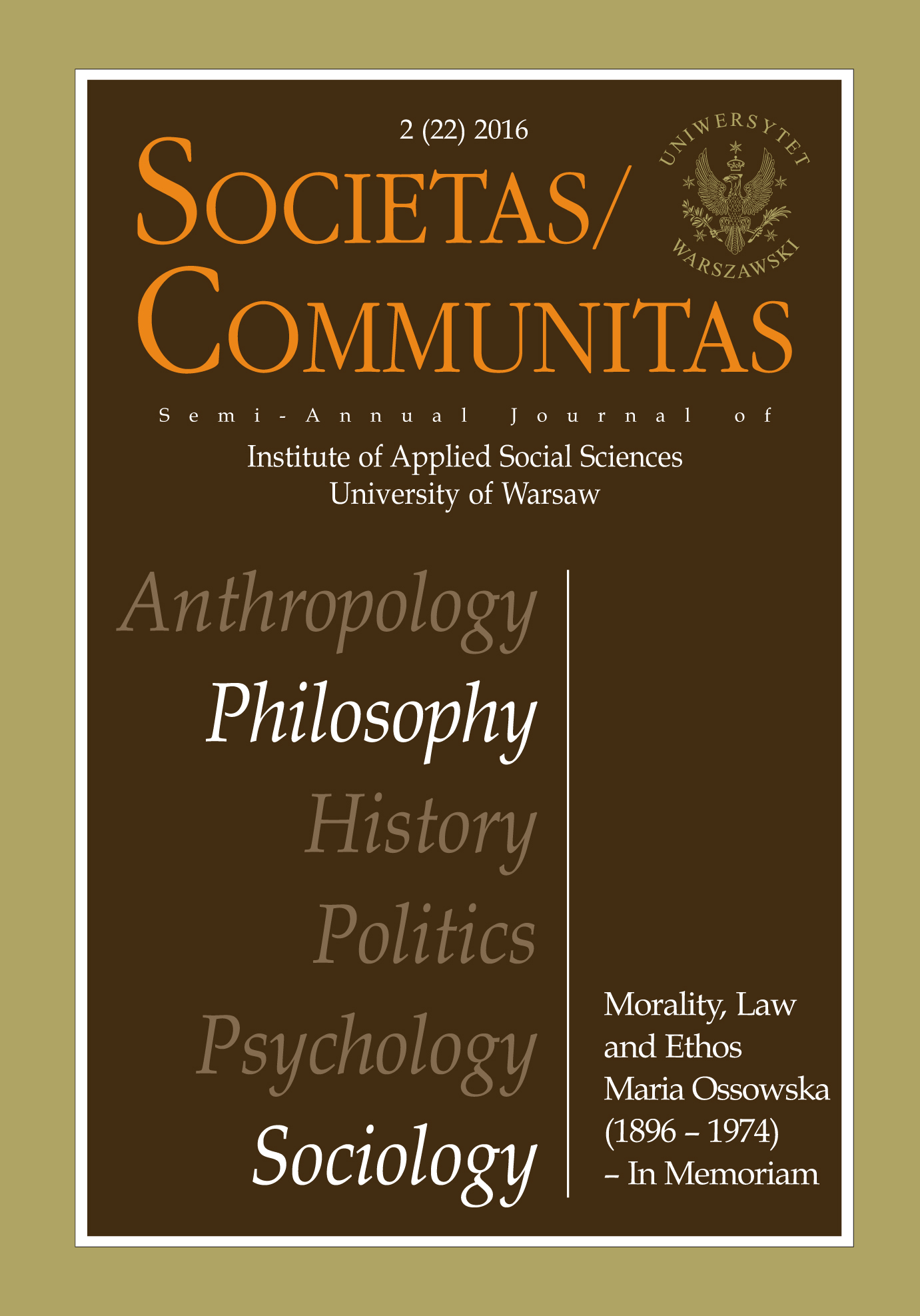Maria Ossowska: Between Knights and Comrades
Maria Ossowska: Between Knights and Comrades
Author(s): Jacek HołówkaSubject(s): Sociology
Published by: Instytut Stosowanych Nauk Społecznych Uniwersytetu Warszawskiego
Keywords: ethics; empiricism; native cultures; advanced societies; social liberalism; tolerance, social norms
Summary/Abstract: Maria Ossowska belonged to the second generation of the Lviv-Warsaw School,a group of philosophers who developed a programme of research that hadstrong affinities with the logical positivism of the Vienna Circle. She did notintend to formulate or give a new definition of the programme of empiricalresearch in social sciences but she conducted her work in a manner that strictly conformed with the tenet that moral philosophy can be practised as a fieldof empirical research. She was ready to make allowances for a wide disparityamong natural drives in traditional societies. She relied on the findings of cultural anthropology which indicated that some cultures were highly competitive, while others were friendly and cooperative, some were tolerant and accepted various lifestyles, others were restrictive and defensive. Taking thesepresuppositions as a starting point, she argued that most societies tended toacquire a similar pattern of values when their life styles rose above the level ofthe mere struggle for survival. In other words, native cultures were highlydifferentiated, while advanced cultures tended to be uniform. Relying on theseclaims she argued that moral behaviour was practically inseparable from socially encouraged behaviour, future types of morality could not be predictedfrom the current ones, but a highly functional moral system was particularlysuited to social liberalism, and vice-versa.
Journal: Societas/Communitas
- Issue Year: 2016
- Issue No: 22 (2)
- Page Range: 21-36
- Page Count: 16
- Language: English

